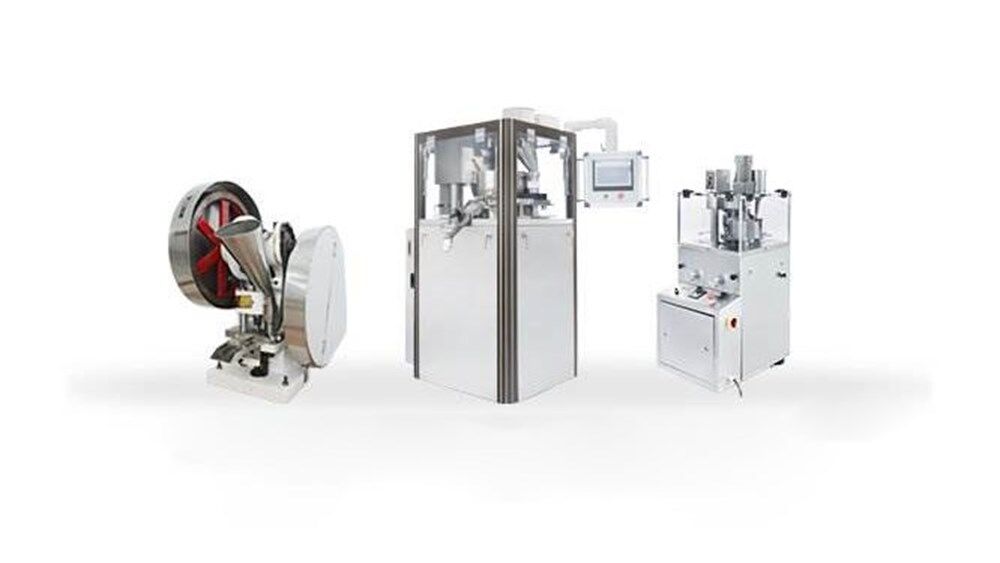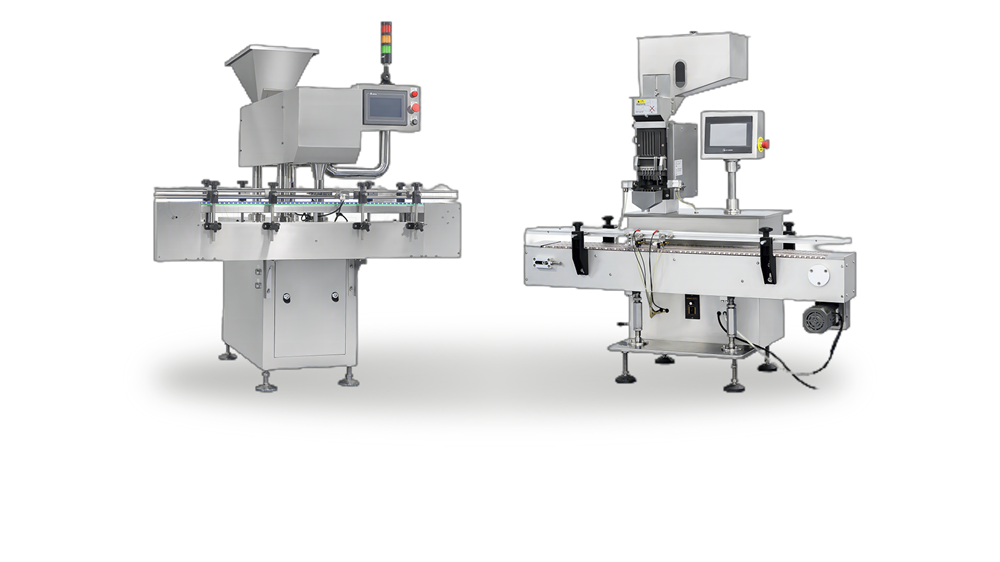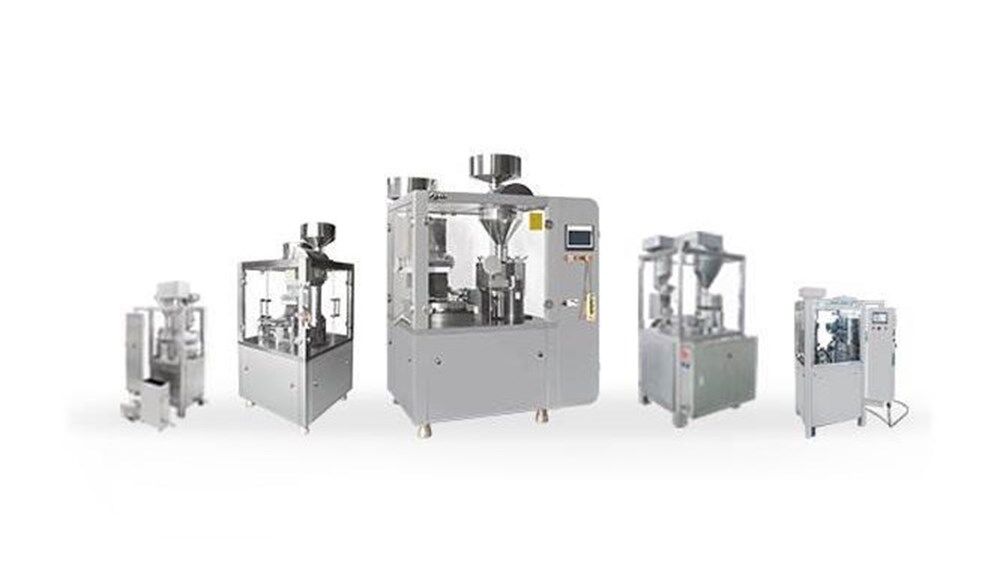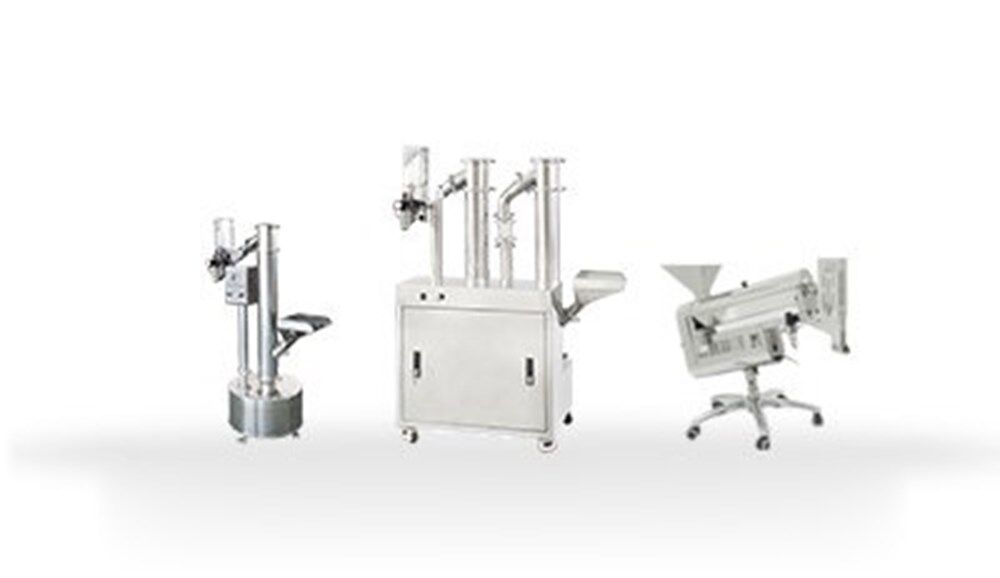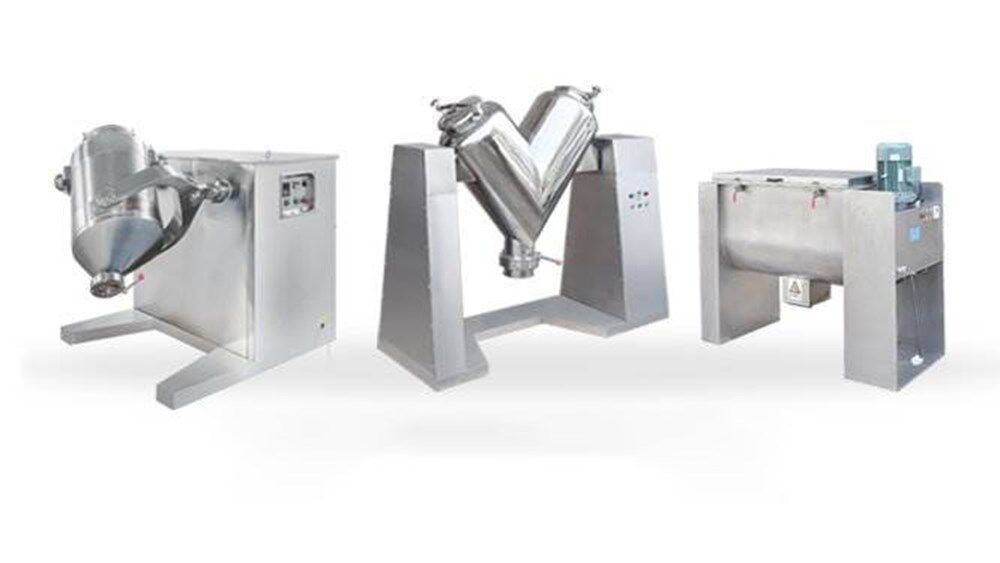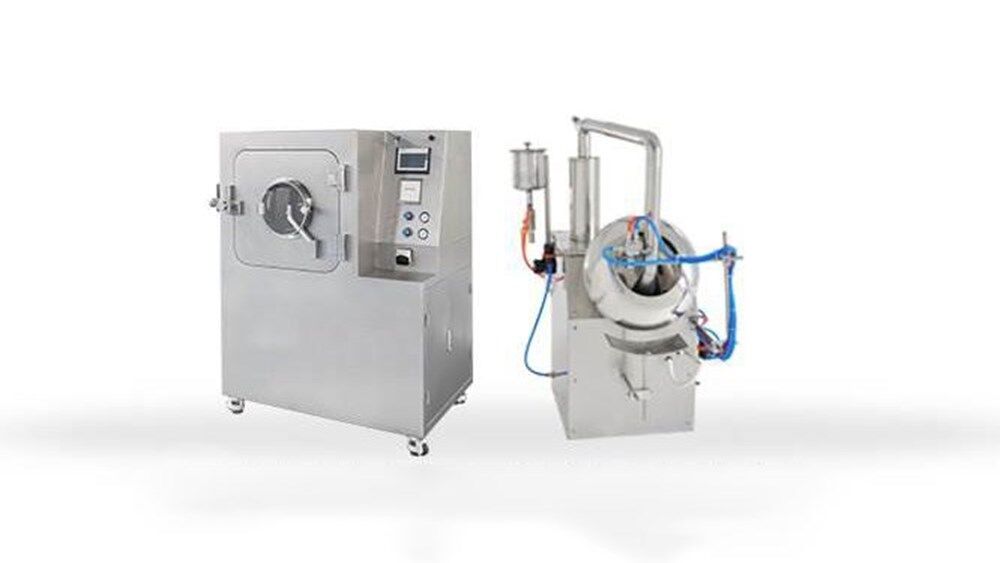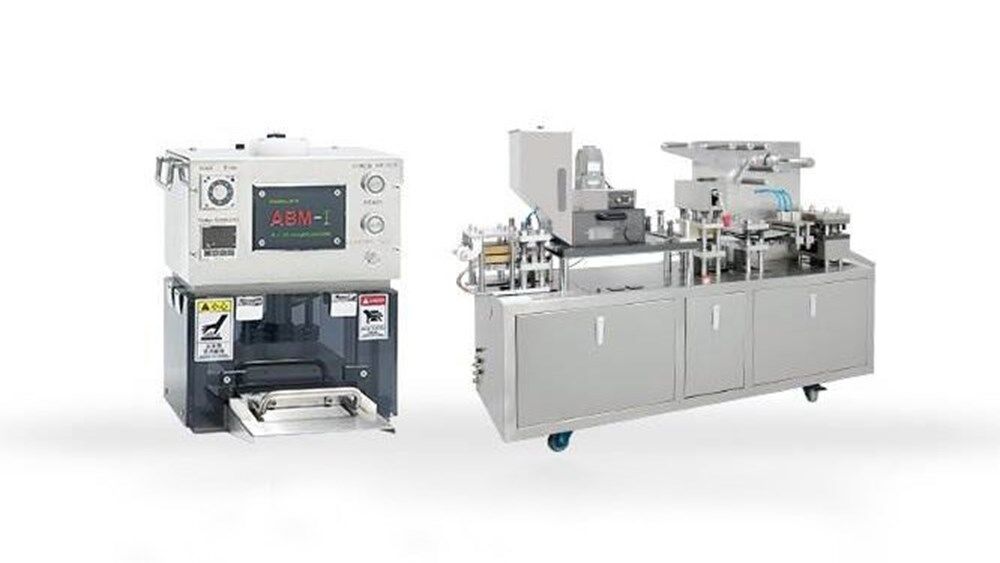Delayed Release vs Enteric Coated: What's the Difference?
Not all pills work the same, even though they may look similar. Ever seen "delayed-release" or "enteric-coated" on a medication label? Do you wonder what these terms actually mean? It turns out that understanding the difference matters more than you might think. How a pill interacts with your body can significantly affect its effectiveness.

Taking the right type of pill is very important for managing your health more effectively. In this post, we'll walk through the differences between delayed release vs enteric coated medications. Also, we'll explore when each is best suited for use.
What Is Delayed Release?
Delayed release is one of the drug release mechanisms. As its name implies, this mechanism controls when a medication is released. A delayed-release medication can release its active ingredient at a specific time after you ingest it.
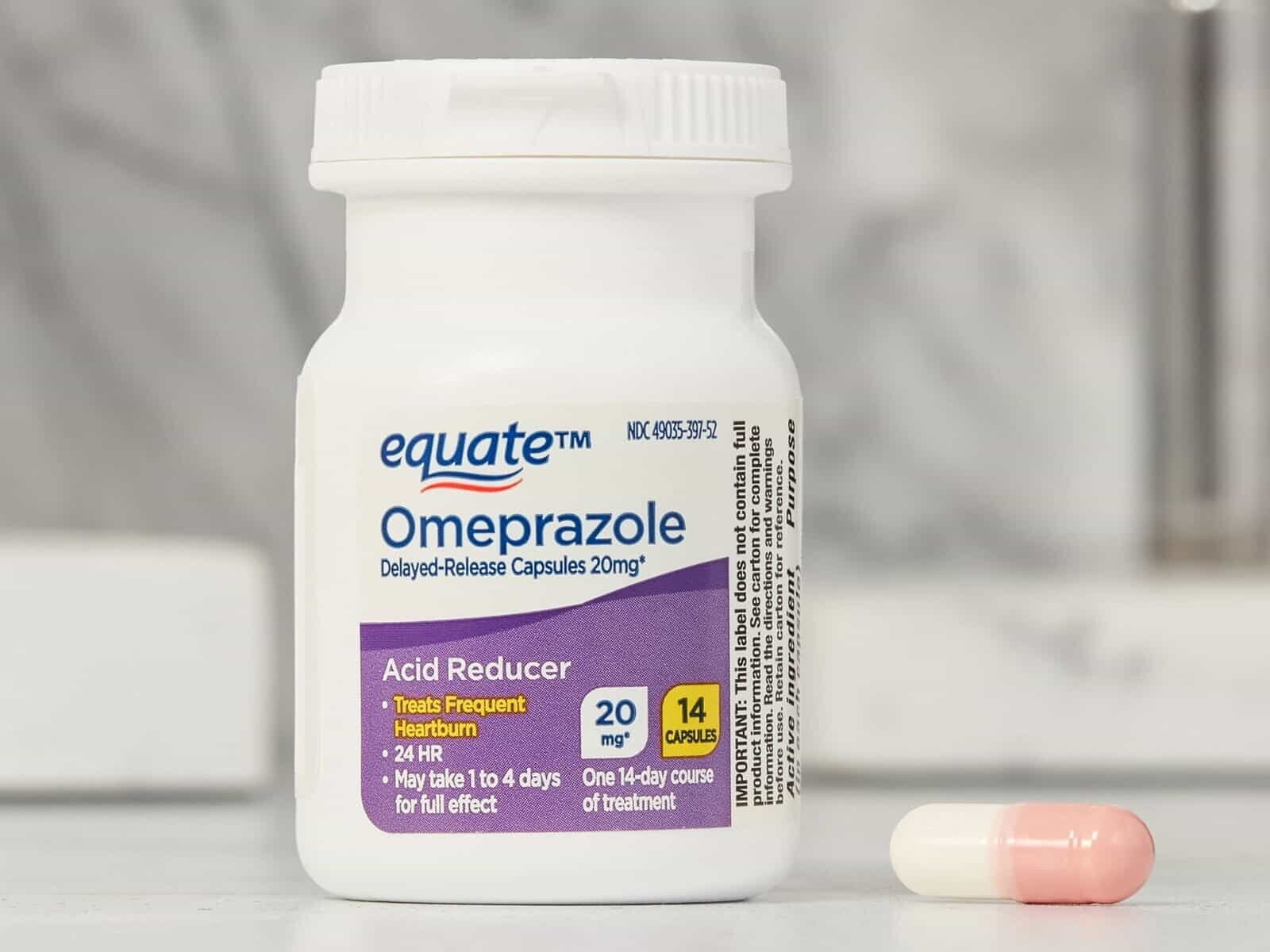
In other words, the medication won't kick in your stomach as other regular pills do. It can remain inactive in the acidic environment of your stomach. When it reaches a particular area, typically in the small intestine, it dissolves to be absorbed by your system.
Common Examples of Delayed-Release (DR) Medications
– Omeprazole: Decreases stomach acid.
– Venlafaxine: Releases slowly to provide a consistent anti-depressive effect.
– Naproxen: Offers lasting pain relief without the need for frequent doses.
How Does Delayed Release Work?
These medications often have a special coating or formulation. They control when and where the drug is released. The coating is meant to dissolve at a specific pH level. It often protects the active ingredients from stomach acid and lets them be released into the intestines.

(Image Credit: Svenja Lohner, Science Buddies / Science Buddies)
In the case of a special formulation, it allows the drug to be released after a certain period, regardless of the pH. This ensures a steadier level of the drug in your bloodstream over time.
What Is Enteric Coating?
Enteric coating is one of the common types of coating for medications. It's often made from materials like CAP, PVAP, MAC, shellac, or HPMCP. These substances are resistant to stomach acid but dissolve at higher pH levels.
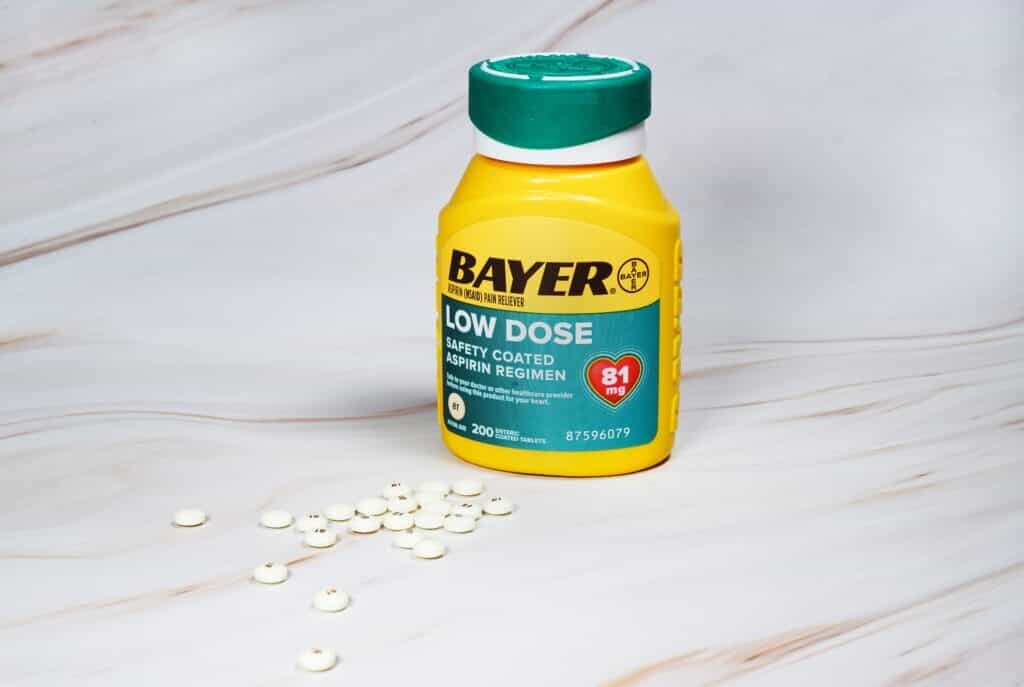
The coating is just a protective layer. It stops drugs from breaking down in your stomach. Instead, it keeps them intact in the stomach and ensures they are only absorbed in the small intestine.
Common Examples of Enteric-Coated (EC) Medications
– Aspirin: Gentler on the stomach lining when taken long-term for heart health or pain relief.
– Diclofenac: More effective when absorbed in the intestines to reduce inflammation.
– Pantoprazole: Releases the intestines to treat gastroesophageal reflux disease.
How Does Enteric Coating Work?
When a pill is enteric-coated, it's like having a special polymer protective layer. As the pill reaches the stomach, this coating keeps it from breaking down too early. The pill survives in stomach acid. Then, it moves through the stomach as a whole.
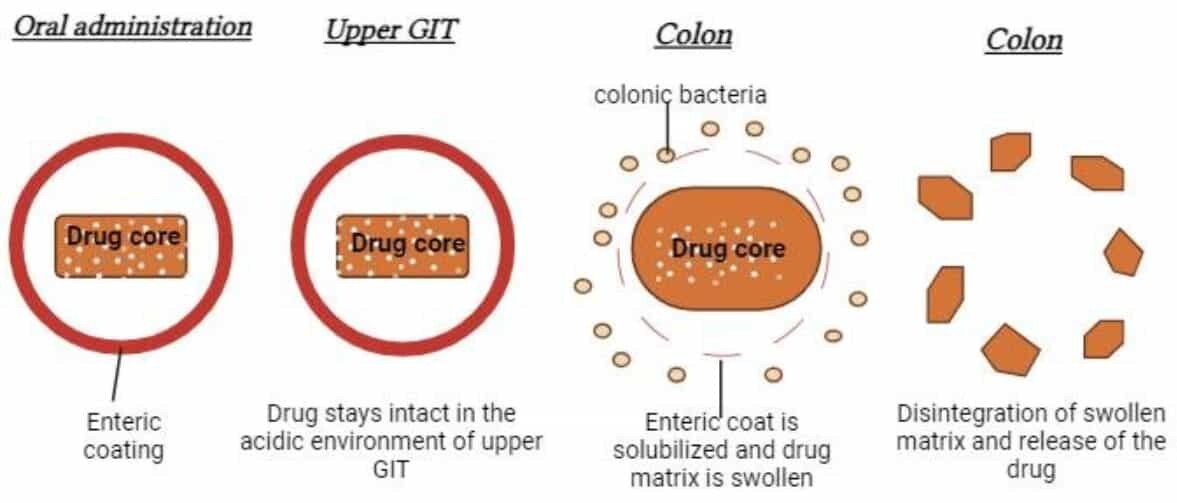
(Image Credit: Rozhan Arif Muhammed, ResearchGate)
Once the pill reaches the small intestine, where the environment is less acidic, the enteric coating dissolves. During the process, all the active ingredients are released and absorbed here. The coating is typically applied to medications that may irritate your stomach lining. So, it not only protects your stomach but also ensures the drug reaches the right site of action.
Delayed Release vs Enteric Coated: Compare Side by Side
Here's a simple comparison table to help you understand the key differences between delayed-release and enteric-coated medications.
|
Feature |
Delayed Release |
Enteric Coated |
|
Definition |
Medications with a special coating or formulation. Designed to release active ingredients at a later time after ingestion. |
Medications with a special polymer coating. Meant to protect active ingredients from dissolving in stomach acid. |
|
How They Work |
Drugs are formulated to dissolve and release gradually once they reach a specific part of the digestive system. |
The coating prevents drugs from breaking down in the stomach; they only dissolve in the intestines with higher pH levels |
|
Purpose |
To provide a steady release of medication over time. To reduce the need for frequent dosing. |
To protect the stomach from irritation. To shield medications from being destroyed by stomach acid. |
|
Ideal For |
Conditions that require extended drug effects, such as long-term pain management or chronic conditions like acid reflux. |
Medications that can irritate the stomach or need to be absorbed in the intestines to be effective. |
|
Common Medications |
Proton pump inhibitors, some pain relievers, certain antidepressants. |
Aspirin, certain NSAIDs (like diclofenac), and omeprazole. |
|
Stomach Protection |
Not necessarily designed for stomach protection but ensures a slow, controlled release. |
Specifically designed to protect the stomach lining from irritation or prevent drug breakdown by stomach acid. |
|
When to Use |
When you need consistent medication levels in your body over time without frequent dosing. |
When you want to avoid stomach irritation or need the drug to be absorbed in the intestines. |
|
Effect Timing |
Release over time after passing the stomach. Usually offer long-lasting effects. |
Delay release until after the medication passes the stomach. Typically have no immediate effect until reaching the intestines. |
Delayed Release vs Enteric Coated: Pros and Cons
Delayed-Release Drugs
Pros:
— They work longer, so you don't need to take them frequently.
— They release the drug gradually, helping maintain stable levels in the bloodstream.
Cons:
— As they release slowly, they're not ideal if you need quick relief from symptoms.
— Breaking or crushing delayed-release pills can result in the entire dose being released at once, potentially leading to side effects or overdose.
— Delayed release may cause more consistent side effects, depending on how your body reacts.
Enteric-Coated Drugs
Pros:
— They can protect your stomach from irritation.
— Some work better when they are absorbed in the intestines.
— They safeguard medications from being destroyed by stomach acid.
Cons:
— They may not be a good option if you need fast relief.
— They're not ideal for everyone.
— They can sometimes be more expensive than standard immediate-release drugs.
How to Choose Between Delayed Release vs Enteric Coated Medications

When choosing between delayed-release and enteric-coated medications, consider the following things:
1. Physician Guidance
Taking the right medication always matters. So, consulting with a doctor should be the first and most important thing. The doctor will tell you which one is good for you based on your treatment goals.
2. The Condition You're Treating
If you're suffering from a chronic condition like acid reflux or ongoing pain, you need steady management. Delayed-release medications are often more suited for these conditions. Enteric-coated drugs are usually used to treat GERD and IBD. These conditions require the medication to survive stomach acid and take effect in the intestines.
3. Stomach Sensitivity
If you have a sensitive stomach, enteric-coated medications can be a better choice. Especially when you're taking NSAIDs, the enteric coating helps protect your stomach lining from irritation. Delayed-release medications do not necessarily offer this kind of protection.
4. Convenience
Delayed-release medications reduce the need for multiple doses throughout the day. However, enteric-coated drugs may not change the dosing frequency significantly.
5. Cost
The manufacture of enteric-coated medications requires specialized equipment, techniques, and extensive testing. Some are even patented. These can lead to a higher price tag for the drugs.
Final Thoughts
Knowing the difference between delayed release vs enteric coated drugs can really help you find the right treatment. Delayed-release meds release the active ingredient more slowly over time. Enteric-coated ones protect your stomach and are only released in the intestines. It's always a good idea to check in with your doctor to figure out which option is best for you. Be sure to follow their advice for safe and effective use.
Leave your comment
Also Offers
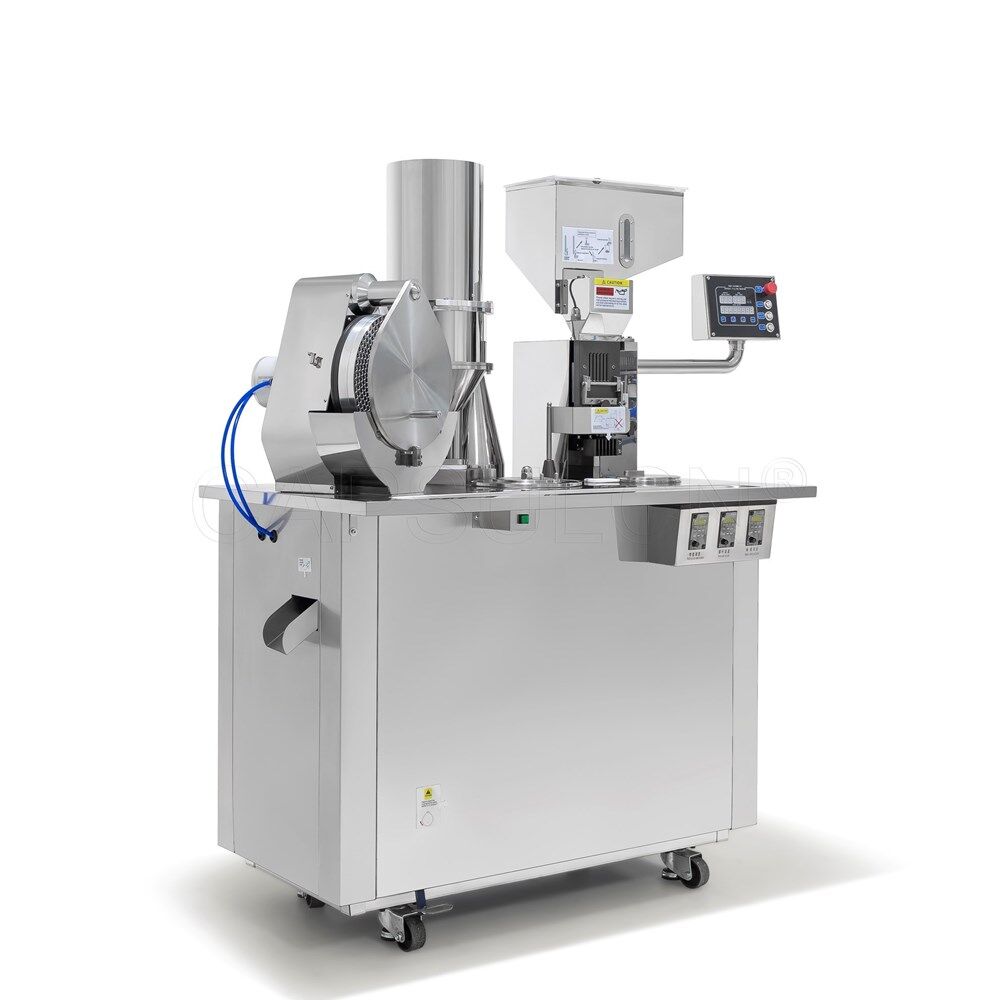
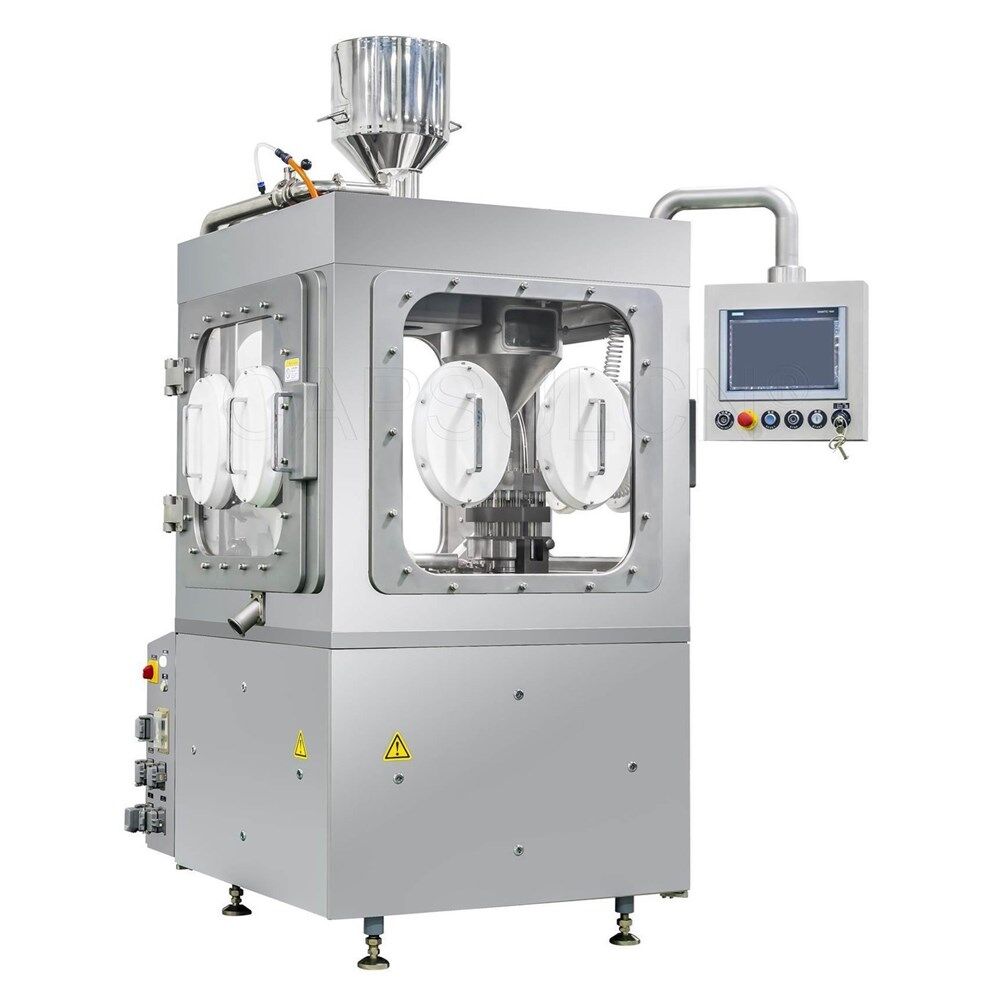
Containment Automatic Capsule Filling Machine SFK-703
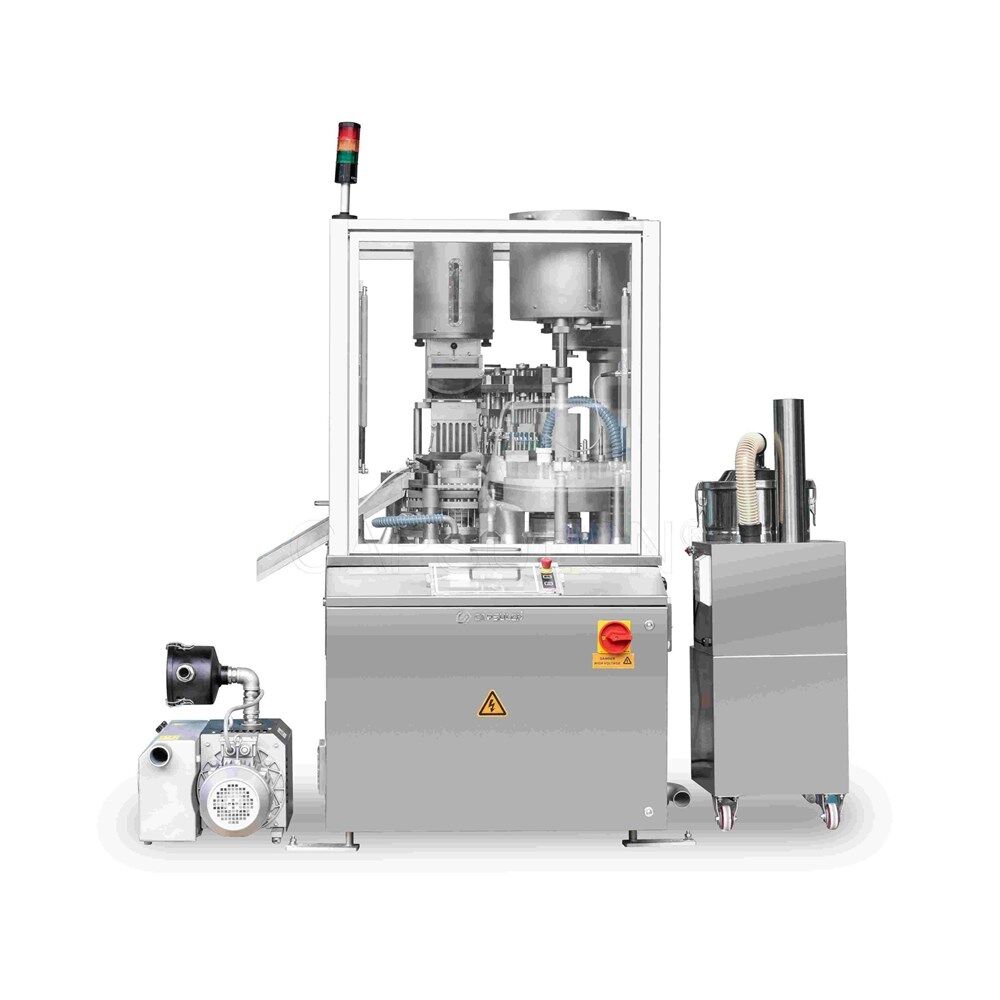
Fully Automatic Dosator Capsule Filling Machine CZ-40

Our Team
As an expert in the pharmaceutical and pharmaceutical packaging industry, iPharMachine has provided solutions for hundreds of pharmaceutical and health product manufacturers for 17 years. By visiting customers, we get good reviews from our customers.
- info@ipharmachine.com
- English Español Deutsche
